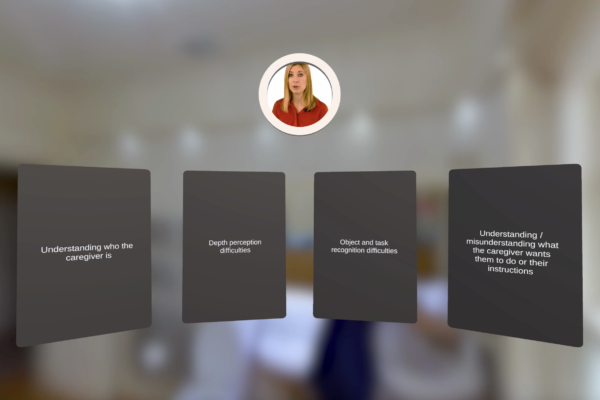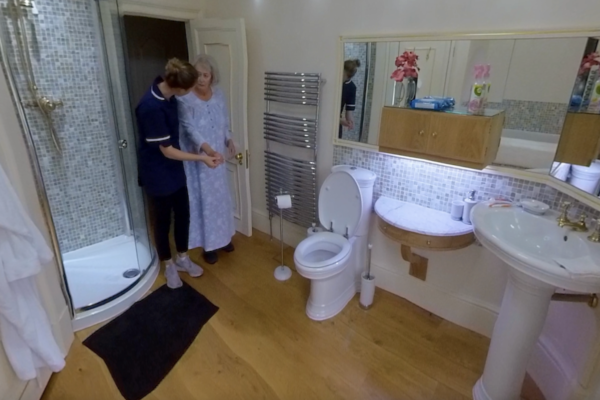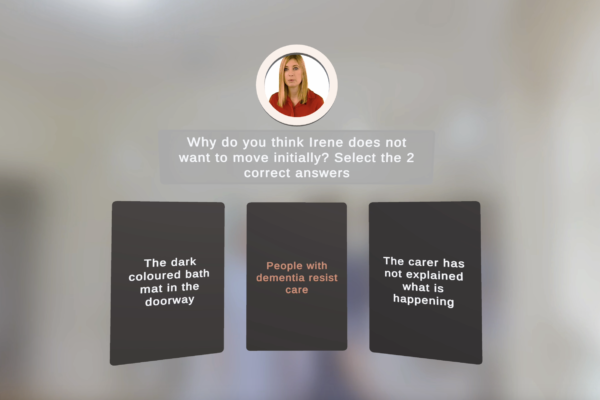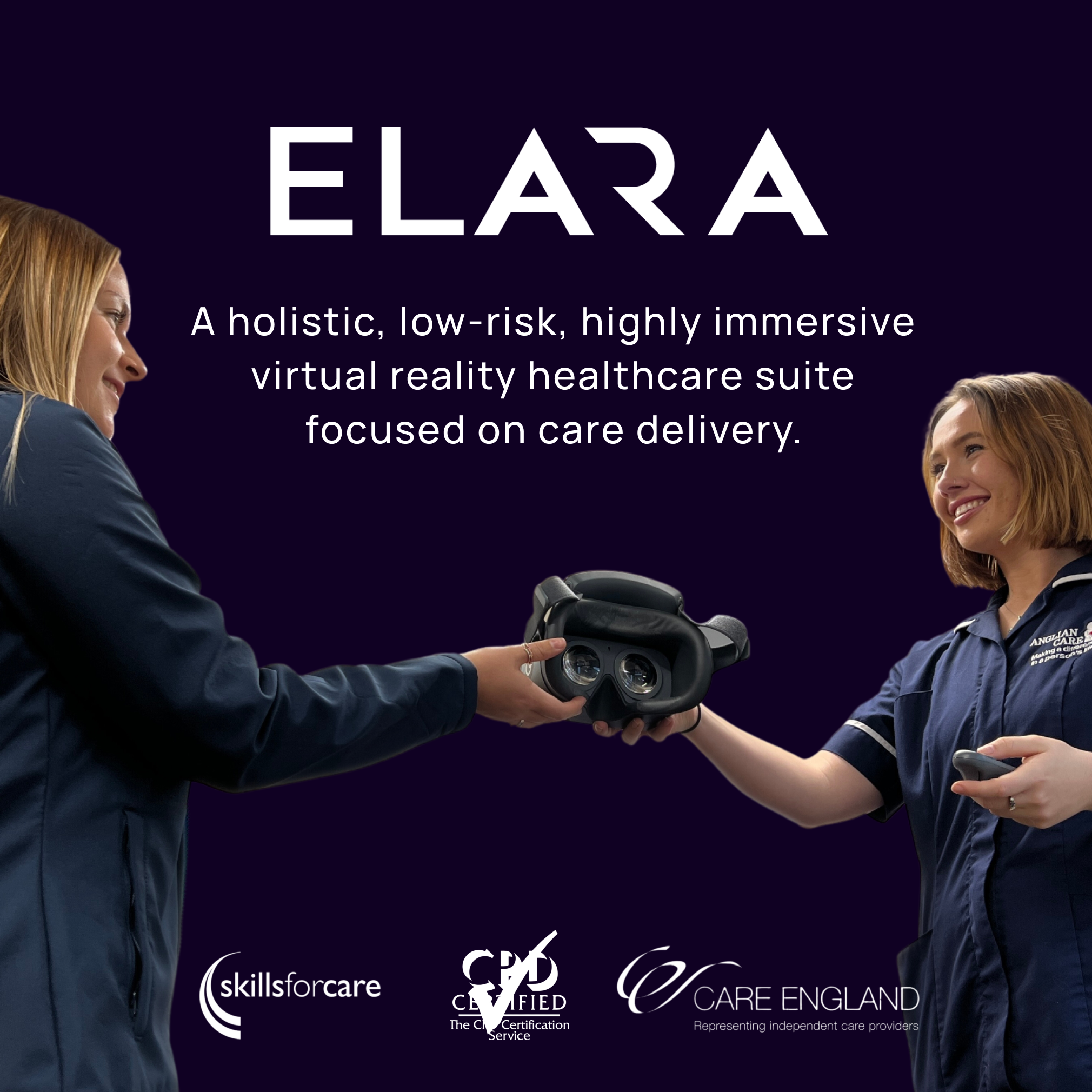
The pandemic has shone a spotlight on social care, highlighting its strength and resilience during the most troubling of times. Recognising the importance of social care and the need for investment and development in the future, MOONHUB has developed ELARA, a holistic, low-risk, highly immersive virtual reality healthcare suite focused on care delivery.
Our Dementia Care VR training immerses learners in real-life situations that mirror the challenges of social care boosting technical knowledge and heightening emotional soft skills. The Dementia Care course is designed with a person-centred approach, endorsed by Skills For Care and certified by the CPD.
Our training is a proactive approach to transfer knowledge of dementia care via VR, endorsed by Skills for Care and approved and accredited by CPD standards. Co-curated with the leading academic in the UK, Professor Claire Surr, our dementia care training is an in-depth, multifaceted learning experience of the highest of degrees. The training curricula focus on identifying the uniqueness of those you care for. We are convinced that dementia is only a diagnosis, not a definition of your patients.
Training Overview
The five scenarios, which includes Getting Washed, Choosing Clothes, Lunch Time, Approach Methods and Being Meaningfully Occupied immerses learners in life-like, day-to-day interactions between a caregiver and a dementia patient – in this case below, Irene. Upon completing the five scenarios, the learner is aware of the key perception challenges faced by Irene. Irene’s core cognitive difficulties and the key communication techniques needed to provide her with excellent support. The learner not only is trained to become a superior caregiver but ends the training with a comprehensive understanding of the world of a person suffering from dementia.
Interactivity Playbook
Throughout the training, users engage with questionnaires developed by Professor Claire Surr. These questionnaires can vary from correct answers to process panels dictating what processes should take place to provide superior care. Within the Multifaceted Approach scenario, the user is tasked to choose an approach out of the four options to take following a scenario introduction. The scenario is designed to show the user all the other approaches, independent of the outcome in order to train the user on all possibilities. Given the nature of dementia, no one fit-for-all approach works, emphasising our person-centered approach.
Key Stats
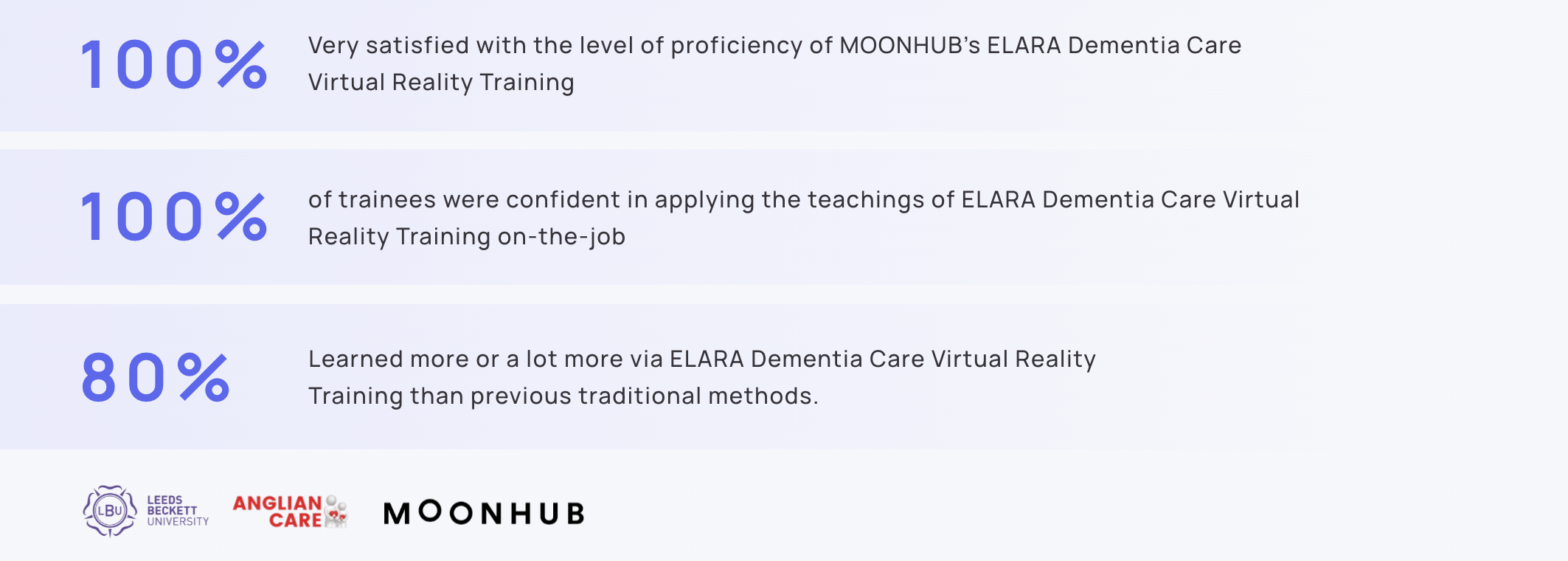
Key Benefits of Training with VR
VR Training offers a safe environment for learners to fail without real-world repercussions, facilitating meaningful learning experiences and improved performance in high-stakes situations. It also eliminates the need for costly equipment, facilities, and travel, offering learners access to modules from anywhere, thereby streamlining the training process. VR training modules engage learners through interactive virtual simulations, enhancing memorability and enjoyment while significantly improving knowledge retention compared to traditional methods. And lastly it maintains consistent standards by immersing users in controlled environments, guaranteeing uniform exposure to diverse situations and ensuring all employees receive standardised content and assessments.
If you would like to know more about ELARA, enquire here.
View Case Study Here.


